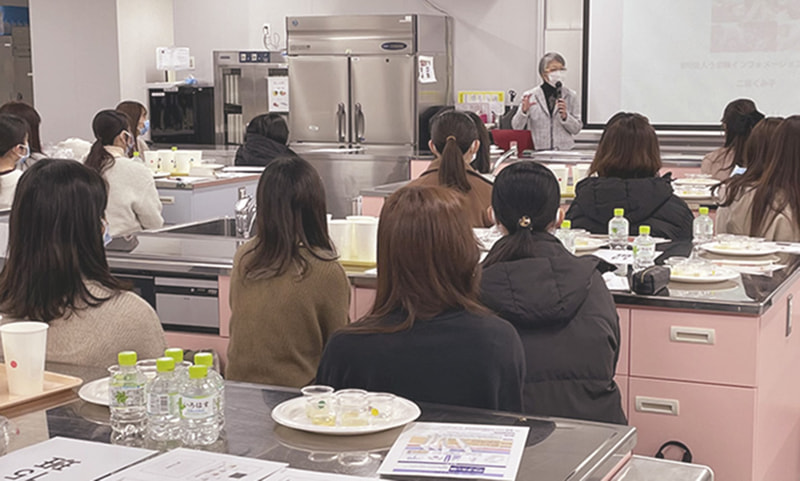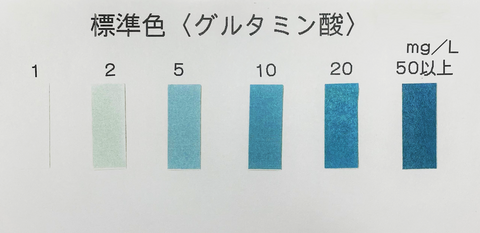Special lecture for students at Kyushu Women's University
January 2022

Umami rich dashi is indispensable for Japanese cooking. However, you may not think about the taste of umami very often. If you can identify what umami tastes like and feel it on your tongue, that will help you in your daily cooking.
The Umami Information Center (UIC) gave an annual lecture on umami at Kyushu Women's University on January 17, 2022. A total of 100 of the third-year students from Faculty of nuturition and Faculty of human life attended.
The three-hour lecture was given by Dr. Kumiko Ninomiya, a UIC consultant. The lecture consisted of two parts: the first half was a classroom lecture on the umami basics, and the second half was a practical class including observation, tasting, and experiment using dashi ingredients.
After these experiences, the students thought about how they would describe umami when introducing it to others who did not know it.
In the practical class, niboshi was used along with kombu (hidaka, ma-kombu, rausu, and rishiri) as a dashi ingredient. Niboshi is a small sardine that has been dried after boiled and is often used as soup stock ingredient for miso soup in Kyushu area.
The students observed the differences in the appearance of the various kombu and the taste of the dashi made with different kombu and water. For many of the students, it was the first time to compare different types of kombu.
In the tasting experience of adding umami rich ichiban dashi to miso water, which was made by less miso than normal homemade miso soup, the students experienced the effect of adding umami and learned the fact that the umami of dashi makes low-salt soup taste more satisfying.
This year, a new experiment using a kit to visualize the glutamate contained in dashi by enzymes was conducted. The students were able to visually confirm that samples with higher glutamate content had a darker shade of blue color.

The glutamate content was indicated by the shade of blue color.
The lecture was followed by a Q&A session in which various questions were raised, such as "How should I use the umami seasonings and in what quantities?" *1 and "Is excessive intake of glutamate harmful to health?" *2
We hope that the participating students will utilize what they have learned in this lecture in their future activities.
*1: It is recommended to use less salt than usual and add appropriate amount of umami seasoning. If you use too much umami seasoning, it will affect the aftertaste of the dish. Just as using too much salt or sugar can make the taste too strong to eat, using too much of any seasoning can ruin the taste.
*2: Glutamate is an amino acid that is also produced in our body. It does not affect our health even if we take it too much. However, it may affect the aftertaste.
